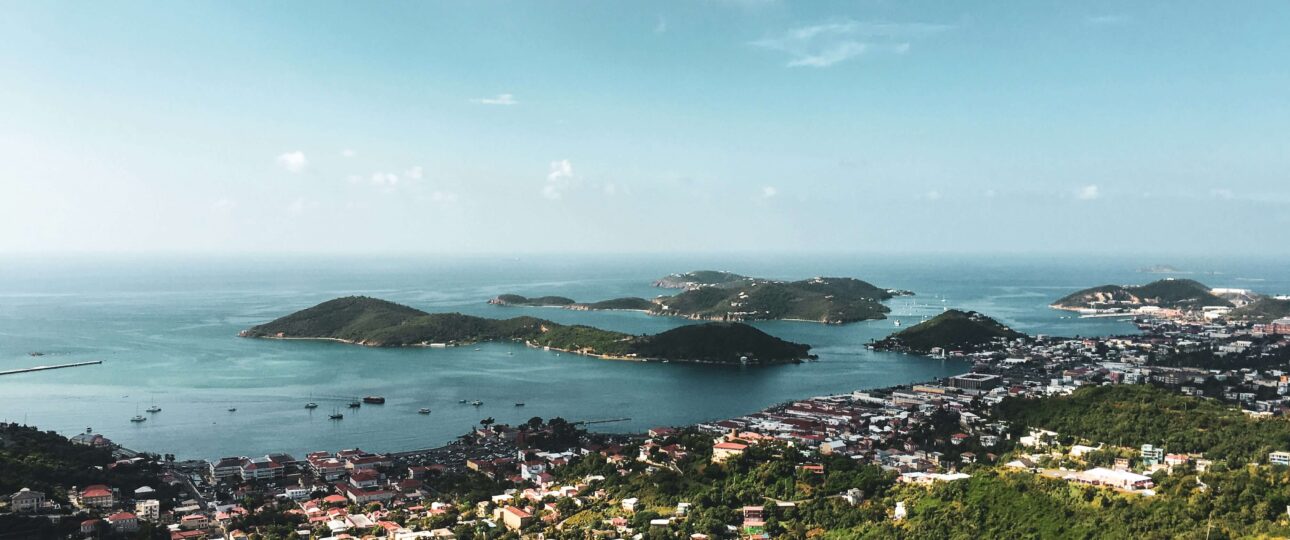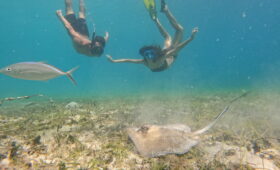Imagine stepping onto sun-kissed shores where the turquoise sea gently laps against powdery white sands, and lush emerald hills rise in the background, dotted with swaying palm trees. Welcome to the Virgin Islands—a tropical paradise that captivates the senses and soothes the soul. With their pristine beaches, crystal-clear waters teeming with vibrant marine life, and verdant landscapes rich in exotic flora, these islands offer a slice of heaven on earth. The warm Caribbean breeze carries the melodies of local calypso music, while the golden sunsets paint the sky with hues of pink and orange, setting the stage for unforgettable memories.
If you're planning your first visit to this enchanting destination, you're in for a treat. This article is your essential guide to navigating the wonders of the Virgin Islands, packed with valuable travel tips to help you make the most of your journey. We'll provide you with practical planning advice, highlight must-see attractions that showcase the islands' natural beauty and cultural heritage, and offer insights into local customs to enrich your experience. From hidden gems to popular hotspots, we've got all the information you need to ensure a smooth, enjoyable, and memorable trip. So, let's dive in and explore the treasures that await you in the Virgin Islands.
1. Understanding the Virgin Islands
The Virgin Islands are a breathtaking archipelago nestled in the Caribbean Sea, divided into two distinct territories: the U.S. Virgin Islands (USVI) and the British Virgin Islands (BVI). Each offers its own unique charm while sharing the enchanting beauty of the region.
Geographical Overview
- U.S. Virgin Islands (USVI): Comprising three main islands—St. Thomas, St. John, and St. Croix—the USVI is a haven for beach lovers and adventure seekers alike. St. Thomas is known for its bustling port city of Charlotte Amalie and vibrant nightlife. St. John boasts the stunning Virgin Islands National Park, covering two-thirds of the island with lush forests and pristine beaches. St. Croix, the largest of the trio, offers rich cultural experiences and historical sites, including colonial forts and sugar plantations.
- British Virgin Islands (BVI): The BVI consists of over 60 islands and cays, with the most notable being Tortola, Virgin Gorda, and Jost Van Dyke. Tortola, the largest island, is famous for its mountainous landscapes and sailing culture. Virgin Gorda captivates visitors with The Baths, a geological wonder of giant granite boulders forming scenic grottoes. Jost Van Dyke is renowned for its laid-back atmosphere and lively beach bars.
Entry Requirements
- U.S. Virgin Islands: As an unincorporated territory of the United States, U.S. citizens can enter without a passport—only a valid government-issued photo ID is required. International visitors must present a valid passport and, if necessary, a U.S. visa.
- British Virgin Islands: All visitors need a valid passport. Citizens of certain countries may require a visa; it's advisable to check with the nearest British embassy or the BVI government's official website for specific requirements.
- COVID-19 Protocols: Entry requirements related to COVID-19 are subject to change. As of October 2023, some restrictions may still apply, such as proof of vaccination or negative test results. Travelers should verify the latest protocols on official government websites before departure.
Currency and Language
The U.S. Dollar (USD) is the official currency in both the USVI and the BVI, simplifying transactions for American visitors. English is the primary language spoken across all the islands, making communication easy for English-speaking travelers. You'll find that locals often speak with a melodic Caribbean accent and are warm and welcoming to visitors.
Understanding these essentials about the Virgin Islands will help you navigate your journey with confidence, allowing you to focus on soaking up the sun and immersing yourself in the island culture.
2. Best Time to Visit
Choosing the best time to visit the Virgin Islands depends on your personal preferences, budget, and what you hope to experience during your trip. The islands offer something special year-round, but understanding the seasonal differences will help you plan the perfect getaway.
Peak Season (December to April)
The peak tourist season in the Virgin Islands runs from December to April, coinciding with the northern hemisphere's winter months.
- Advantages:
- Ideal Weather: This period boasts some of the most pleasant weather conditions. You can expect warm temperatures averaging between 78°F (25°C) and 85°F (29°C), low humidity, and minimal rainfall. The consistent sunshine and gentle trade winds create perfect conditions for beach lounging, snorkeling, and sailing.
- Vibrant Events: The islands come alive with energy during peak season. You'll have the opportunity to partake in lively festivals such as Carnival celebrations in both the U.S. and British Virgin Islands, featuring colorful parades, calypso music, and local cuisine. Holiday festivities add to the vibrant atmosphere, making it an exciting time to immerse yourself in the local culture.
- Disadvantages:
- Higher Prices: With the influx of tourists escaping colder climates, accommodation rates and flight prices tend to increase. Popular resorts and hotels may fill up quickly, so it's advisable to book well in advance to secure the best deals.
- Larger Crowds: The most popular beaches, restaurants, and attractions can become crowded during this time. If you prefer a more tranquil and secluded experience, the peak season's hustle and bustle might be less appealing.
Off-Peak Season (May to November)
The off-peak season extends from May to November, offering a different but equally enchanting experience.
- Advantages:
- Lower Prices: This period is ideal for travelers on a budget. You'll find more affordable rates on accommodations and flights, with many establishments offering discounts and special packages. It's a great opportunity to enjoy luxury experiences at a fraction of the peak season cost.
- Fewer Tourists: The islands are less crowded, providing a more relaxed and intimate atmosphere. You'll have easier access to attractions, and it's often possible to find a quiet spot on even the most popular beaches.
- Disadvantages:
- Hurricane Season Risks: The off-peak season coincides with the Atlantic hurricane season, particularly from August to October. There's an increased risk of tropical storms and hurricanes, which can disrupt travel plans and outdoor activities.
- Higher Humidity: Temperatures remain warm, ranging from 80°F (27°C) to 88°F (31°C), but humidity levels rise, making the weather feel hotter. Afternoon showers and occasional thunderstorms are more common, which might limit some outdoor pursuits.
Weather Considerations
- Average Temperatures and Rainfall: The Virgin Islands enjoy a tropical climate with warm temperatures year-round. Rainfall varies throughout the year, with the wettest months typically being September to November. However, showers are often brief and followed by sunshine.
- Tips for Monitoring Weather Forecasts During Hurricane Season:
- Stay Informed: Keep an eye on weather updates from reliable sources like the National Hurricane Center or local news outlets before and during your trip.
- Purchase Travel Insurance: Consider getting comprehensive travel insurance that covers cancellations or interruptions due to severe weather.
- Flexible Itinerary: Be prepared to adjust your plans if necessary. Check cancellation policies for accommodations and activities in advance.
- Stay Connected: Ensure you have access to communication channels to receive timely alerts and instructions from local authorities.
- Follow Local Advice: In the event of a storm, heed warnings and advice from locals and officials to ensure your safety.
By weighing the advantages and disadvantages of each season, you can choose the best time to visit the Virgin Islands based on your preferences. Whether you're seeking the lively atmosphere of peak season or the serene ambiance of the off-peak months, the islands offer a captivating experience filled with natural beauty and rich culture. Remember, with proper planning and flexibility, your trip to the Virgin Islands can be an unforgettable adventure any time of the year.
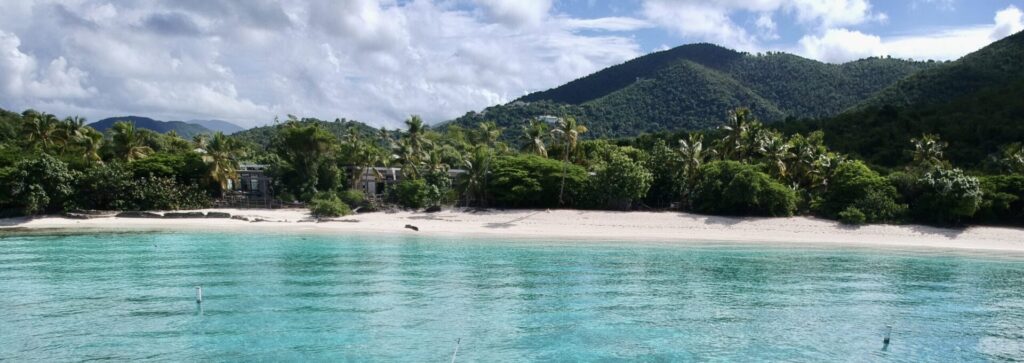
3. Planning Your Trip
Planning your trip to the Virgin Islands involves several key steps to ensure a smooth and enjoyable experience. From booking flights to selecting accommodations and figuring out transportation, careful planning will help you make the most of your tropical getaway.
Booking Flights
When flying to the Virgin Islands, you'll primarily arrive at one of the major airports:
- Cyril E. King Airport (STT) on St. Thomas in the U.S. Virgin Islands.
- Henry E. Rohlsen Airport (STX) on St. Croix in the U.S. Virgin Islands.
- Terrance B. Lettsome International Airport (EIS) on Beef Island, connected to Tortola in the British Virgin Islands.
Tips for Finding Affordable Flights:
- Book Early: Airlines often offer better prices for tickets purchased several months in advance, especially for peak travel seasons.
- Be Flexible with Dates: If your schedule allows, use flexible date search options to find the cheapest days to fly.
- Compare Airlines: Check both major carriers and regional airlines for competitive rates. Sometimes, flying into nearby hubs like San Juan, Puerto Rico, and then taking a short flight or ferry to the Virgin Islands can be more economical.
- Set Fare Alerts: Utilize travel websites and apps to receive notifications when prices drop for your desired routes.
- Consider Package Deals: Some travel agencies offer bundled packages that include flights, accommodations, and even activities at discounted rates.
Accommodation Options
The Virgin Islands offer a wide range of accommodations to suit various budgets and preferences:
- Resorts and Hotels: Ideal for travelers seeking luxury amenities, beachfront locations, and on-site services such as spas, restaurants, and concierge assistance. Notable options include The Ritz-Carlton on St. Thomas and Rosewood Little Dix Bay on Virgin Gorda.
- Villas and Vacation Rentals: For a more private and home-like experience, consider renting a villa or condo. This is a great option for families or groups, offering multiple bedrooms, kitchens, and sometimes private pools. Websites like Airbnb and VRBO list numerous properties across the islands.
- Guesthouses and Bed & Breakfasts: These provide a cozy, intimate setting often run by local hosts. They offer a chance to immerse yourself in the local culture and can be more budget-friendly.
- Eco-Lodges and Campsites: For nature enthusiasts, places like Cinnamon Bay Campground on St. John offer eco-friendly accommodations close to hiking trails and beaches.
Recommendations Based on Budget and Preferences:
- Luxury Travelers: Opt for high-end resorts or upscale villas with panoramic ocean views and top-notch amenities.
- Families and Groups: Consider spacious vacation rentals or family-friendly resorts that offer activities for all ages.
- Budget-Conscious Travelers: Look for guesthouses, smaller hotels, or shared accommodations on Airbnb to save on lodging costs.
- Adventure Seekers: Choose eco-lodges or campsites to stay close to nature and enjoy outdoor activities.
Transportation
Getting around the Virgin Islands can be an adventure in itself, with several transportation options available:
- Ferries: Ferries are a popular way to travel between islands, especially in the USVI and BVI. They are relatively inexpensive and provide stunning views of the Caribbean Sea. Schedules and routes vary, so check ahead for times and destinations.
- Car Rentals: Renting a car offers the freedom to explore at your own pace. Rental agencies are available at airports and in major towns.
- Driving Tips:
- Left-Side Driving: In the British Virgin Islands, vehicles drive on the left side of the road. In the U.S. Virgin Islands, they also drive on the left, but most cars have the steering wheel on the left side (opposite of the UK standard), which can be confusing for some drivers.
- Road Conditions: Be prepared for steep, winding roads and sometimes narrow passages. Drive cautiously and be mindful of local speed limits.
- Temporary Driving Permits: In the BVI, you'll need to obtain a temporary local driving permit, which is usually available through the car rental agency for a small fee.
- Driving Tips:
- Taxis: Taxis are widely available, especially near airports, ferry terminals, and popular attractions. Fares can be higher than in the mainland U.S., and rates are often per person rather than per ride. Agree on the fare before starting your journey.
- Public Transportation: In some areas, open-air buses called "safari buses" operate along set routes and are a cost-effective way to get around, particularly on St. Thomas and St. John.
- Biking and Walking: In smaller towns and flat areas, biking or walking can be a pleasant way to explore. Some hotels offer bike rentals.
By considering these transportation options and planning accordingly, you can navigate the islands with ease and tailor your experience to your preferences. Whether you prefer the independence of a rental car or the convenience of taxis and ferries, understanding your choices will help you make the most of your visit to the Virgin Islands.
4. Must-See Attractions
The Virgin Islands boast breathtaking landscapes, rich history, and vibrant culture. Here are some must-see attractions to make your first visit unforgettable.
U.S. Virgin Islands
St. Thomas
- Charlotte Amalie: The capital city is a bustling port town steeped in history and charm. Wander through cobblestone streets lined with colonial architecture and vibrant murals. Visit Fort Christian, a 17th-century fortress that now houses a museum showcasing the island's past. For shopping enthusiasts, Charlotte Amalie is renowned for its duty-free shopping, offering everything from jewelry to local crafts. Don't miss the 99 Steps, a historic staircase leading to panoramic harbor views.
- Magen's Bay: Consistently ranked among the world's most beautiful beaches, Magen's Bay is a pristine stretch of white sand framed by lush hills and calm, turquoise waters. Ideal for swimming and sunbathing, amenities include picnic areas and equipment rentals, ensuring a comfortable beach day.
St. John
- Virgin Islands National Park: Covering over two-thirds of St. John, this park boasts miles of hiking trails through tropical forests and along scenic coastlines. Enjoy exceptional snorkeling spots where you can swim among vibrant coral reefs teeming with marine life.
- Trunk Bay: Famous for its underwater snorkeling trail, Trunk Bay offers a self-guided tour with underwater signs describing coral formations and sea life. The crystal-clear waters and powdery white sand create a picture-perfect setting for relaxation and exploration.
St. Croix
- Buck Island Reef National Monument: Just off the coast of St. Croix, this protected marine area features one of the Caribbean's finest barrier reefs. Guided tours take you through an underwater trail showcasing dazzling coral formations and a variety of tropical fish.
- Christiansted: Step back in time in this charming town known for its well-preserved colonial architecture. Stroll along the waterfront boardwalk, visit Fort Christiansvaern, and explore Danish-style buildings housing shops, galleries, and restaurants.
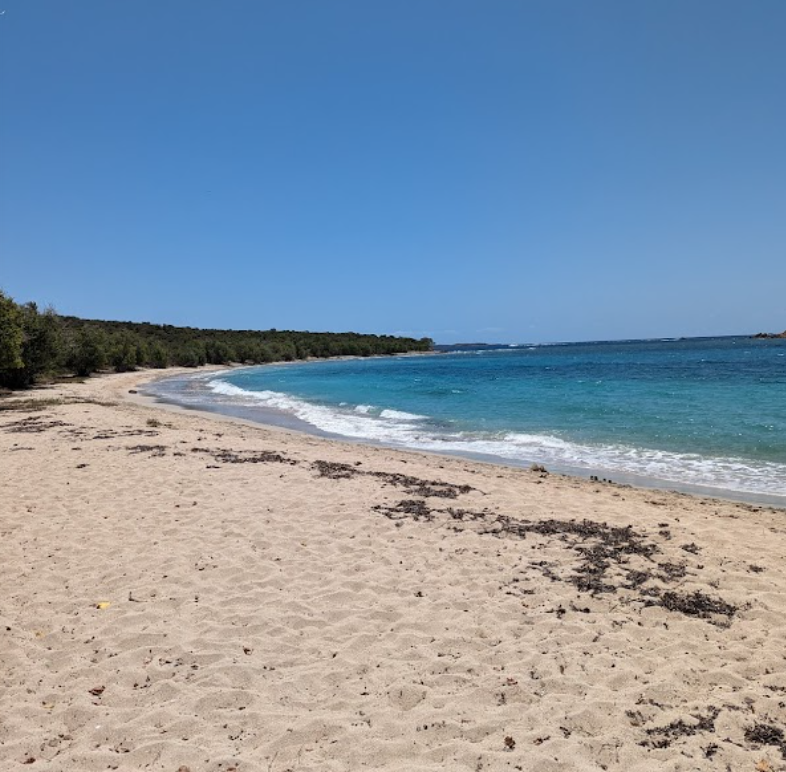
British Virgin Islands
Tortola
- Cane Garden Bay: Nestled on the north shore of Tortola, this picturesque beach is famous for its soft sand, gentle waves, and vibrant atmosphere. By day, it's perfect for swimming and kayaking; by night, enjoy beachfront bars with live music and a taste of the island's nightlife.
- Sage Mountain National Park: Home to the highest point in the Virgin Islands at 1,716 feet (523 meters), the park features lush rainforests and hiking trails. Trek through verdant vegetation and encounter unique plant and bird species. The summit offers panoramic views of surrounding islands and the azure sea.
Virgin Gorda
- The Baths: Perhaps the most famous attraction in the BVI, The Baths is a geological wonder featuring massive granite boulders creating hidden grottoes and tidal pools. Explore labyrinthine paths, wade through crystal-clear waters, and discover secluded coves perfect for swimming and snorkeling.
Jost Van Dyke
- White Bay: Renowned for its powdery white sand and tranquil waters, White Bay is home to the famous Soggy Dollar Bar, birthplace of the Painkiller cocktail—a delicious blend of rum, pineapple juice, orange juice, cream of coconut, and nutmeg. It's an ideal spot to unwind, mingle with fellow travelers, and soak up the island vibes.
These must-see attractions showcase the diversity and beauty of the Virgin Islands, offering a mix of relaxation, adventure, history, and culture. Whether you're exploring underwater wonders, hiking through lush landscapes, or basking on sun-drenched beaches, the Virgin Islands promise an unforgettable experience.
Book a Tour On St Thomas
Pick Up available on St. Thomas & St. John
5. Cultural Insights and Etiquette
Understanding and respecting local customs can greatly enhance your experience in the Virgin Islands. Embracing the island culture not only enriches your visit but also fosters positive interactions with the residents.
Local Customs
One of the most endearing aspects of the Virgin Islands is the warm and friendly nature of its people. Greetings are an important part of daily life here. When interacting with locals, it's customary to begin conversations with a polite greeting such as "Good morning," "Good afternoon," or "Good evening" before proceeding. This simple courtesy is deeply ingrained in the culture and is seen as a sign of respect. Skipping greetings may be perceived as impolite or rushed. Taking the time to exchange pleasantries can lead to more meaningful connections and a deeper appreciation of the local way of life.
Respecting the Environment
The Virgin Islands are home to some of the most breathtaking natural environments in the world, including delicate coral reefs, diverse marine life, and lush tropical landscapes. Protecting these ecosystems is of utmost importance to both locals and visitors.
- Practice Eco-Friendly Habits: Reduce your environmental footprint by minimizing waste, using reusable water bottles, and avoiding single-use plastics.
- Protect Marine Life: When snorkeling or diving, be mindful not to touch or step on coral reefs, as they are fragile and can be easily damaged. Use reef-safe sunscreen to prevent harmful chemicals from affecting marine organisms.
- Leave No Trace: Dispose of trash properly and consider participating in beach clean-up activities if available. Staying on designated trails while hiking helps preserve native flora and fauna.
By respecting the environment, you contribute to the preservation of the islands' natural beauty for future generations to enjoy.
Festivals and Events
Experiencing local festivals and events is a fantastic way to immerse yourself in the culture of the Virgin Islands.
- Carnival Celebrations: Both the USVI and BVI host vibrant Carnival festivals featuring lively parades, colorful costumes, calypso music, and traditional dances. These events celebrate the rich history and cultural heritage of the islands.
- St. Thomas Carnival: Typically held in April, it's one of the largest celebrations in the USVI, culminating in a grand parade and fireworks.
- St. John Festival: Occurs in June and July, coinciding with Emancipation Day and the Fourth of July, featuring boat races and cultural presentations.
- BVI Emancipation Festival: Held in late July and early August, this festival commemorates the abolition of slavery with music, food fairs, and parades.
- Music Festivals and Cultural Events: Throughout the year, the islands host various events showcasing local art, music, and cuisine.
- Music Lovers: Enjoy genres like reggae, steel pan, and fungi music—a unique blend of African and European influences.
- Cultural Experiences: Attend art shows, craft fairs, and food festivals to experience local traditions firsthand.
Participating in these festivities offers a deeper understanding of the islands' heritage and provides an opportunity to engage with the community. Remember to respect local customs during these events, such as asking permission before taking photographs of performers or ceremonies.
By embracing the local customs, practicing eco-friendly habits, and immersing yourself in cultural events, you'll enrich your travel experience and create lasting memories of your visit to the Virgin Islands.
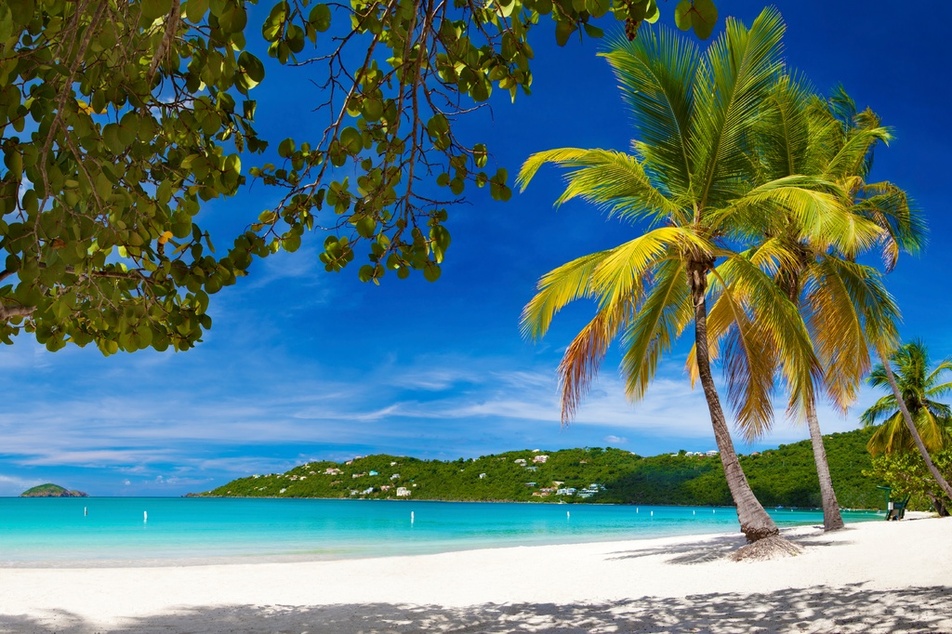
6. Activities and Adventures
The Virgin Islands are a playground for adventure enthusiasts and nature lovers alike, offering a wide array of activities both on land and sea. Whether you're seeking thrilling water sports, serene hikes through lush landscapes, or immersive cultural experiences, there's something for everyone to enjoy.
Water Activities
- Snorkeling and Scuba Diving
Dive into the crystal-clear waters teeming with vibrant marine life and stunning coral reefs.- Top Spots:
- Trunk Bay (St. John): Famous for its underwater snorkeling trail, complete with underwater plaques describing the surrounding sea life.
- Buck Island Reef National Monument (St. Croix): A protected marine area offering some of the best snorkeling and diving in the Caribbean.
- The Indians and The Caves (BVI): Popular dive sites near Norman Island known for their dramatic underwater landscapes.
- Recommended Tour Operators:
- Red Hook Dive Center (St. Thomas): Offers PADI-certified scuba courses and guided dives for all skill levels.
- Dive BVI (Virgin Gorda): Provides snorkeling and diving excursions with experienced guides.
- Safety Tips:
- Always snorkel or dive with a buddy or under the supervision of a certified guide.
- Be mindful of currents and weather conditions.
- Do not touch or disturb marine life or coral reefs to preserve the delicate ecosystem.
- Top Spots:
- Sailing and Boating
With steady trade winds and calm seas, the Virgin Islands are a sailor's paradise.- Charter Options:
- Bareboat Charters: For experienced sailors looking to captain their own vessel.
- Crewed Charters: Enjoy a luxury experience with a professional crew handling navigation and meals.
- Recommended Providers:
- The Moorings (Tortola): Offers a variety of yachts and catamarans for charter.
- Island Spirit Sailing (St. Thomas): Provides day sails, sunset cruises, and multi-day charters.
- Charter Options:
- Kayaking and Paddleboarding
Explore hidden coves, mangrove lagoons, and serene bays at your own pace.- Popular Locations:
- Mangrove Lagoon (St. Thomas): Guided eco-tours allow you to paddle through protected mangrove forests teeming with wildlife.
- Hurricane Hole (St. John): Paddleboard over calm, clear waters surrounded by lush vegetation.
- Safety Tips:
- Wear a life jacket at all times.
- Stay aware of boat traffic and designated swimming areas.
- Protect yourself from the sun with appropriate clothing and sunscreen.
- Popular Locations:
Land Adventures
- Hiking Trails
Trek through tropical forests, along scenic coastlines, and up mountainous terrains.- Notable Trails:
- Reef Bay Trail (St. John): Leads to ancient petroglyphs and a secluded beach. The trail offers a mix of historical and natural wonders.
- Sage Mountain National Park (Tortola): Hike to the highest peak in the Virgin Islands at 1,716 feet for panoramic views of the surrounding islands.
- Notable Trails:
- Wildlife Spotting
Encounter native species such as iguanas, hermit crabs, and a variety of birdlife. Guided nature walks can enhance your experience. - Horseback Riding
- Paul and Jill's Equestrian Stables (St. Croix): Offers guided rides through the rainforest and along the beach, suitable for all skill levels.
- Argo Tours (BVI): Provides horseback excursions with scenic routes and knowledgeable guides.
- Historical Tours and Cultural Excursions
Delve into the rich history and culture of the islands.- Visit Fort Christiansvaern in Christiansted (St. Croix) to explore Danish colonial architecture.
- Tour the Annaberg Sugar Plantation ruins (St. John) for a glimpse into the islands' past.
- Explore local art galleries and museums showcasing Caribbean artists and historical artifacts.
Island Hopping
One of the delights of visiting the Virgin Islands is the ease of exploring multiple islands during your stay.
- Tips for Visiting Multiple Islands:
- Ferries:
- Regular ferry services connect the USVI and BVI, making day trips convenient.
- Inter-Island Boat Services and Native Son Ferry are reliable operators.
- Charter Boats:
- For a personalized experience, consider hiring a private boat charter to set your own itinerary.
- Ferries:
- Necessary Documents for Moving Between USVI and BVI:
- Passport Requirements:
- US Citizens: A valid passport is required to enter the BVI from the USVI and to re-enter the USVI.
- International Travelers: Ensure you have the necessary visas and documentation for both territories.
- Customs and Immigration:
- Be prepared to clear customs and pay any applicable fees when traveling between the USVI and BVI.
- Check the latest entry requirements and health protocols before your trip.
- Passport Requirements:
Island hopping allows you to experience the unique charm of each island, from the bustling streets of St. Thomas to the tranquil beaches of Virgin Gorda. It's an excellent way to maximize your adventure and create lasting memories.
By engaging in these activities and adventures, you'll fully immerse yourself in the natural beauty and vibrant culture of the Virgin Islands. Whether you're gliding over turquoise waters, exploring historical sites, or hiking through lush landscapes, the islands offer endless opportunities for excitement and discovery.
7. Dining and Nightlife
Local Cuisine
The Virgin Islands offer a delectable fusion of Caribbean flavors influenced by African, European, and American cuisines. No visit is complete without indulging in some of the islands' must-try dishes. Conch fritters, made from the tender meat of sea conch mixed with spices and deep-fried to perfection, are a local favorite. Roti, a dish of Indian origin, features a warm flatbread stuffed with curried meats or vegetables, providing a hearty meal on the go. Fresh seafood is abundant; savor grilled lobster, mahi-mahi, or red snapper often caught the same day.
For an authentic taste of island life, explore popular restaurants and street food spots. In St. Thomas, visit Gladys' Café in Charlotte Amalie for traditional Caribbean dishes and warm hospitality. On St. John, Uncle Joe's BBQ offers mouthwatering barbecue in a casual setting. Over in the British Virgin Islands, The Dove Restaurant & Wine Bar in Tortola provides a blend of local and international cuisine in a charming atmosphere. Street vendors and food trucks are also common, serving up local snacks like johnnycakes and patties.
Nightlife
When the sun sets, the Virgin Islands come alive with a vibrant nightlife scene. Beach bars are a quintessential part of the experience, offering tropical cocktails, live music, and stunning ocean views. The Soggy Dollar Bar on Jost Van Dyke is legendary for its signature Painkiller cocktail and lively atmosphere. In St. Thomas, Duffy's Love Shack in Red Hook is known for its festive vibes and creative drinks served in quirky containers.
Live music venues abound, showcasing genres like reggae, calypso, and steel pan. The Beach Bar in St. John hosts local bands and provides a laid-back setting to enjoy tunes by the sea. For those seeking a dance floor, Club 54 in St. Thomas offers a more energetic nightlife hotspot. Bomba's Surfside Shack in Tortola is famous for its full moon parties, attracting both locals and tourists.
Tips for Enjoying Nightlife Safely
To make the most of your evening adventures, consider the following safety tips:
- Stay Aware of Your Surroundings: Keep an eye on your belongings and be mindful of your environment, especially in crowded venues.
- Plan Transportation: Arrange for reliable transportation back to your accommodation. Taxis are widely available; confirm fares beforehand.
- Drink Responsibly: Enjoy local beverages but know your limits. Stay hydrated and never leave your drink unattended.
- Travel in Groups: Whenever possible, go out with companions. There's safety in numbers, and it's more fun to share the experience.
- Respect Local Laws and Customs: Be mindful of local regulations regarding alcohol consumption and noise ordinances.
By indulging in the delicious cuisine and experiencing the lively nightlife, you'll gain a deeper appreciation for the culture and hospitality of the Virgin Islands, making your visit truly unforgettable.
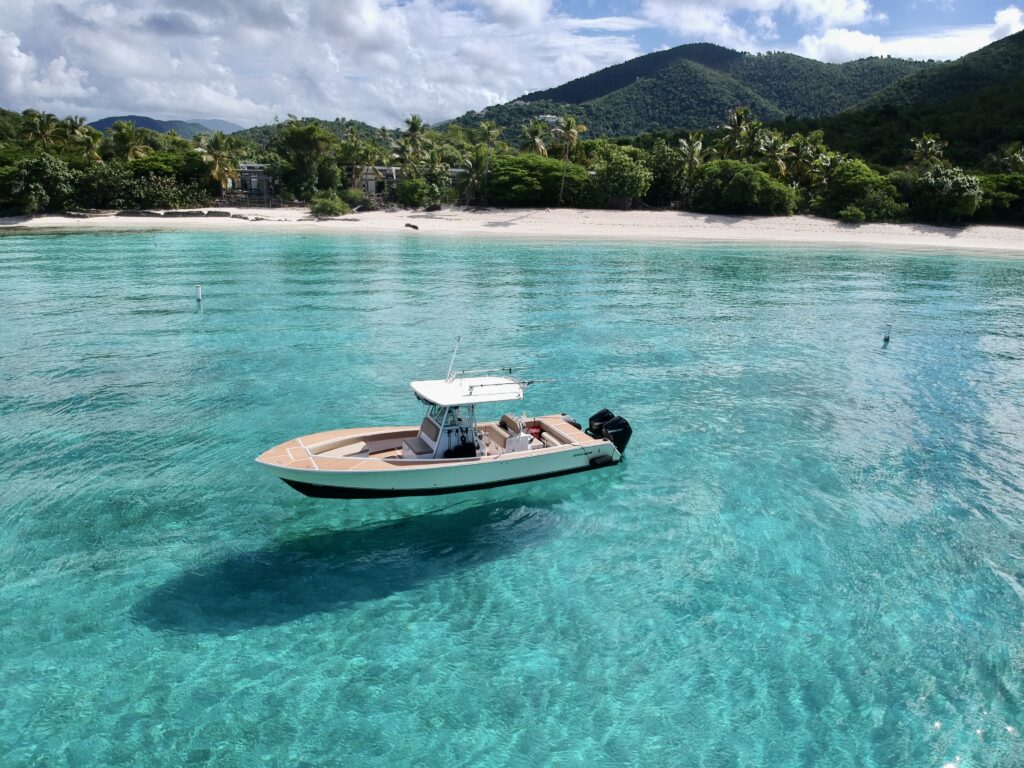
8. Practical Tips for a Smooth Trip
To ensure a hassle-free trip to the Virgin Islands, proper preparation is key. Here are some practical tips to help you pack smartly, stay healthy, and remain connected during your visit.
Packing Essentials
The tropical climate of the Virgin Islands means sun protection is a must. Be sure to pack sunscreen (reef-safe to protect the marine environment), a wide-brimmed hat, and sunglasses with UV protection. The sun can be intense, especially during outdoor activities, so applying sunscreen regularly will help prevent burns.
Bring insect repellent, as mosquitoes and sandflies can be common, particularly during the rainy season. Pack comfortable footwear for exploring—lightweight sandals for the beach and sturdy shoes for hiking or walking around towns. A reusable water bottle is great for staying hydrated while minimizing plastic waste.
Health and Safety
Staying hydrated is essential, especially with the warm Caribbean temperatures. Drink plenty of water throughout the day and limit alcohol intake under the sun. Practice sun safety by taking breaks in the shade and wearing light, breathable clothing.
When swimming, be cautious of currents, and only swim in designated areas. If snorkeling, avoid stepping on coral reefs or disturbing marine life.
It's always a good idea to note down emergency numbers (911 in the USVI and 999 in the BVI) and familiarize yourself with nearby healthcare facilities in case of medical emergencies. Many islands have clinics and hospitals that offer basic and emergency services.
Communication
Staying connected is easy in the Virgin Islands, but be mindful of your options. Mobile phone coverage is available across most islands, but check with your provider about international roaming charges.
- In the U.S. Virgin Islands, U.S. carriers like AT&T and T-Mobile offer service as part of domestic plans.
- In the British Virgin Islands, roaming rates may apply, so consider purchasing a local SIM card for affordable data and call packages.
For internet access, most hotels, restaurants, and public spaces offer Wi-Fi hotspots. However, for more remote areas, you might want to invest in a mobile Wi-Fi device for continuous access during your travels.
By preparing ahead with these essentials, you’ll enjoy a smoother, more comfortable trip to the Virgin Islands while making the most of your time in paradise.
9. Budgeting and Money-Saving Tips
The Virgin Islands can be enjoyed on any budget with a bit of planning and savvy decision-making. Here are some tips to help manage expenses and save money while exploring the islands.
Managing Expenses
- Using ATMs and Credit Cards: ATMs are widely available throughout the Virgin Islands, and credit cards are accepted at most hotels, restaurants, and shops. However, it's a good idea to carry some cash, especially in more remote areas or for smaller vendors that may not accept cards.
- Tips for Avoiding Unnecessary Fees: Check with your bank about international transaction fees, especially if traveling to the British Virgin Islands. Using a travel credit card that offers no foreign transaction fees can help you avoid extra charges. Also, try to withdraw larger amounts at once to minimize ATM fees.
Saving Money
- Eating Like a Local: One of the best ways to save money is by dining at local spots rather than upscale tourist restaurants. Try the delicious street food, such as patties, johnnycakes, or fresh seafood at small local eateries, which offer authentic flavors at lower prices.
- Utilizing Public Transportation: Public transport, such as safari buses in St. Thomas and St. John, is an affordable way to get around. Ferries between islands are also cheaper than private charters.
- Free or Low-Cost Activities: Many natural attractions, such as the beautiful beaches, hiking trails in the Virgin Islands National Park, and snorkeling in shallow waters, are free or come at a low cost. Bring your own snorkeling gear to avoid rental fees and enjoy the stunning underwater landscapes for free.
With these budgeting tips, you can enjoy the Virgin Islands’ beauty and culture while keeping your spending under control, ensuring a memorable experience without breaking the bank.
Book a Tour On St John
Pick Up available on St. Thomas & St. John
10. Sustainable and Responsible Travel
Traveling responsibly in the Virgin Islands helps preserve its natural beauty and cultural heritage for future generations. By practicing eco-friendly habits and respecting local customs, you can make a positive impact on the environment and community.
Eco-Friendly Practices
- Reducing Plastic Use: Carry a reusable water bottle and shopping bag to cut down on single-use plastics. Many islands have initiatives to reduce plastic waste, so supporting them is crucial for keeping the beaches and oceans clean.
- Supporting Local Businesses: Choose locally owned accommodations, restaurants, and shops to support the local economy and minimize your carbon footprint.
Wildlife Protection
When exploring the vibrant marine life, remember these guidelines:
- Respect Marine Life: Do not touch or disturb coral reefs or marine animals. Avoid using harmful sunscreens that can damage the ecosystem, and instead, choose reef-safe sunscreen.
- Leave No Trace: Always clean up after yourself on beaches and hiking trails.
Cultural Respect
- Respectful Interactions: Ask for permission before taking photos of locals, especially in religious or cultural settings.
- Embrace Local Etiquette: Practice patience, politeness, and greet people with a friendly “Good morning” or “Good afternoon.”
By following these sustainable and responsible travel practices, you’ll help protect the Virgin Islands' natural wonders and cultural integrity while enriching your own travel experience.

